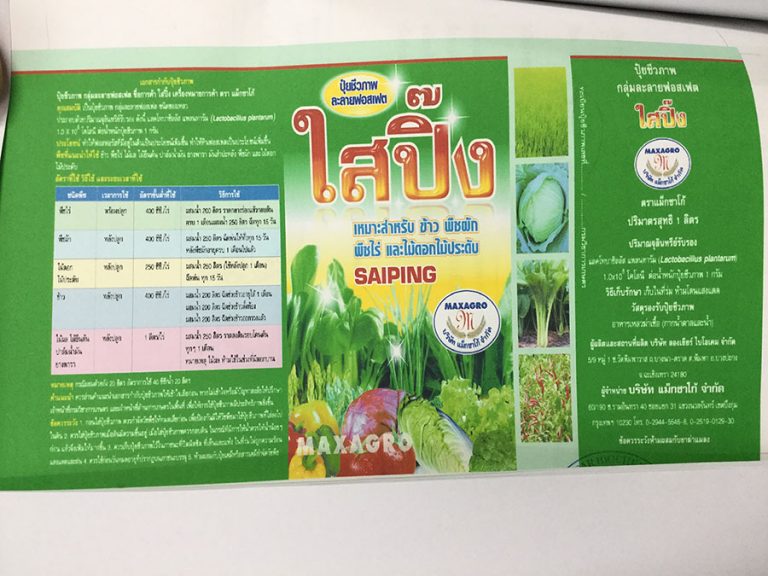Despite the ever-increasing public demand for more environmentally friendly practices in agriculture and no chemical residue on the food we eat, little attention and investment is going into the registration and regulation of bio fertiliser.
Dr. Suparat Kositcharoenkul, Head of the Fertiliser Regulation Group of the Department of Agriculture, recently shared his experiences and views on the challenges facing bio-fertiliser registration and regulation in Thailand and the wider ASEAN region.
In Thailand, the Fertiliser Regulation Group oversees the quality control of fertilisers from the registration level to the market level. Its work ranges from taking care of registration procedures, production licensing, import and export of all types of fertilisers (chemical, bio and organic), to drafting secondary-level law and regulations relating to quality control of fertilisers.
But carrying out their duties is not always smooth sailing as too few officers are assigned to undertake the large volume of tasks.
“We have to approve more than 16,000 licenses per year and with such a small number of officers at our disposal, the work can only be done very slowly,”Dr. Suparat explained.
The workload challenge also extends to product inspection.“With only a few officers to inspect bio fertilisers on the market, quality control at the market level is not as thorough as it should be,”he said, adding that with over 30,000 fertiliser shops in the country, the Group is having to deal with“an increase in numbers of fake and non-qualified products”.
The harmonisation of regulation could further encourage trading of bio fertiliser between the AMS countries. Dr. Suparat explained that “[since] each AMS has different criteria of registration,” this means that certain registered fertiliser from one country may not meet the criteria set by another country, thus hindering the movement of products within the region.
Bio fertilisers VS Organic fertilisers
Bio fertilisers contain living microorganisms capable of creating nutrients that are beneficial to plants and are used to improve soil fertility. Organic fertilisers are derived from organic matter that contains essential nutrients for plants and are subject to biodegradation.


